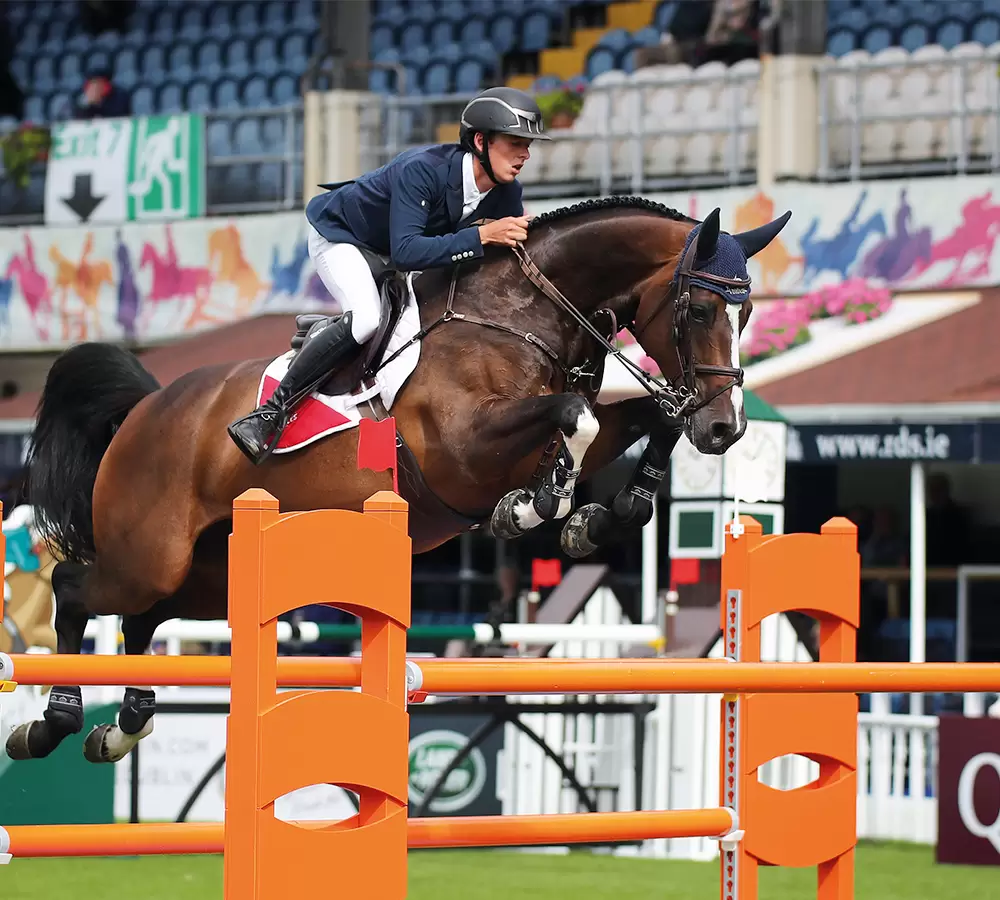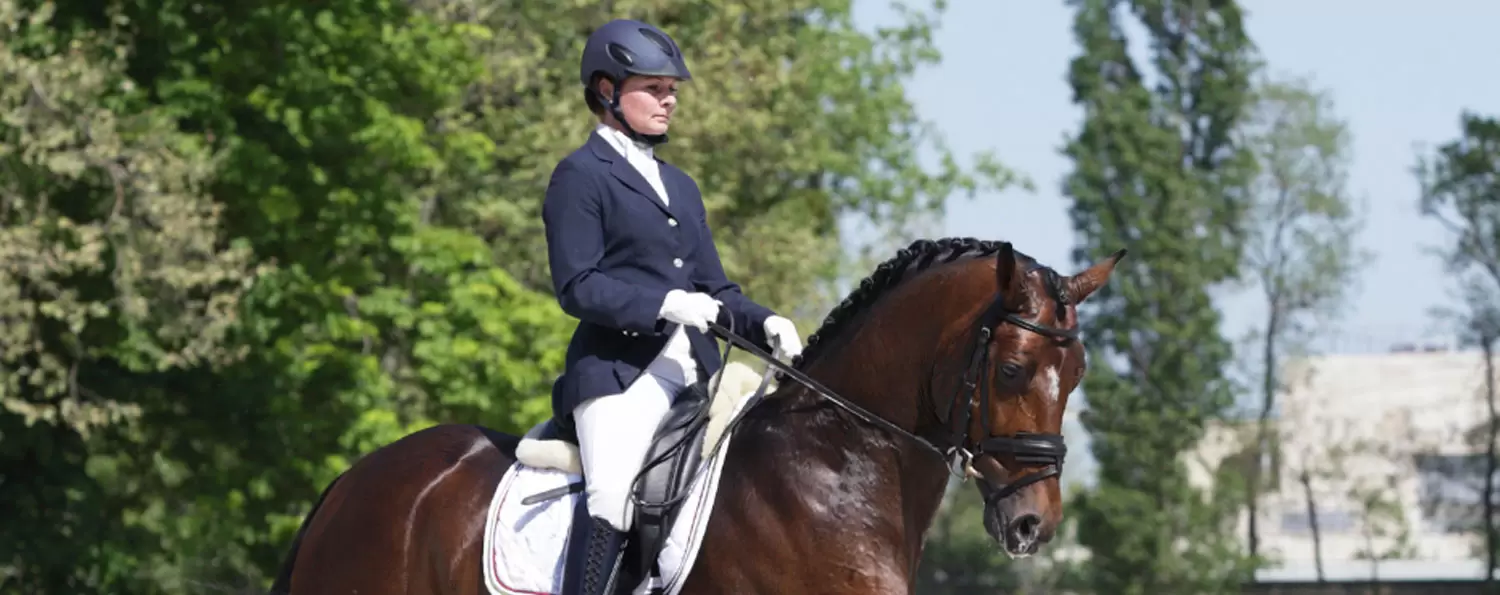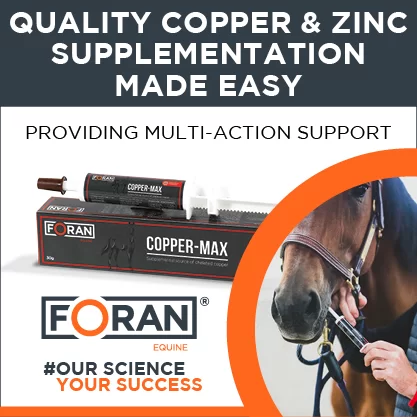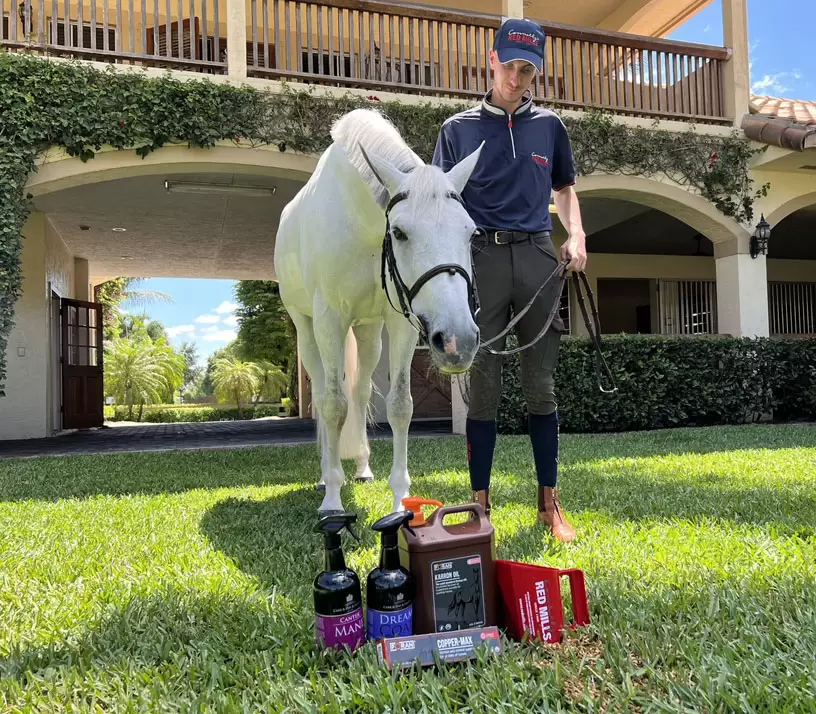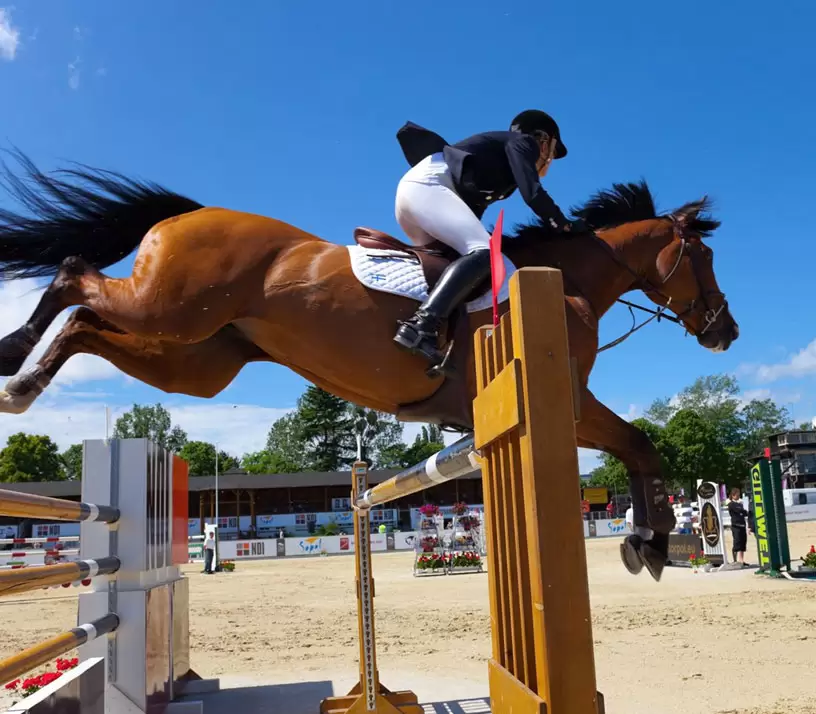
Poor coat? Dull color? No shine? Poor hair quality? Are you struggling to get that rich color and shine? Copper may be your answer!
When I see a dull coat, poor color, poor shine, poor hair quality, I immediately think of a copper deficiency! One of the many roles of copper is in the pigmentation and keratinization of horse hair, and classic indicators of a deficiency include poor dull coat, poor hair quality and loss of pigmentation eg grey/pink spotting or mottling around the muzzle and eyes. It is an extremely easy mineral deficiency to identify. Supplementing with copper can very quickly rectify the poor coat issue and results can be seen in a matter of weeks with a lovely rich shiny coat!
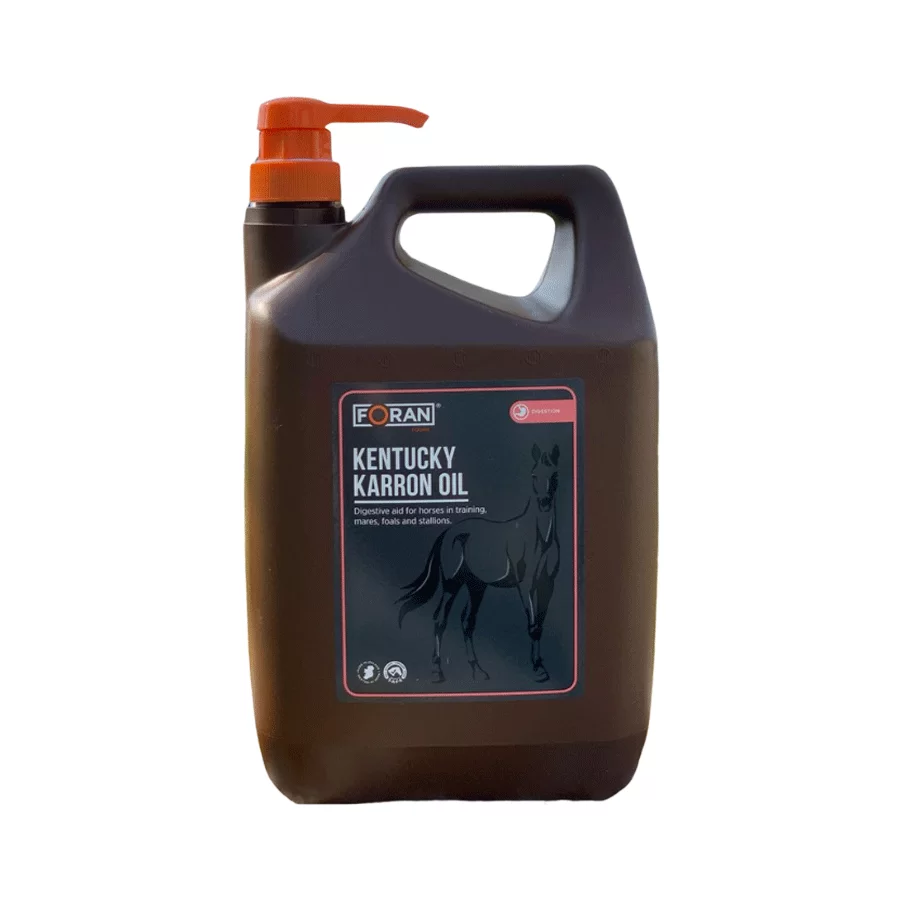
Oil will always help bring on a shine but for that true rich color, copper is the key! Supplement with both though for best results. And always choose an omega 3 rich oil to get not only great shine but to also avail of the anti-inflammatory benefits associated with omega 3. Foran Equine Karron Oil
Supplementing with copper
Horses have a high tolerance to copper, so it is an easy mineral to supplement with. I would always suggest supplementing with copper if in any doubt. The signs of a deficiency are so obvious that it can be taken that there is most likely a deficiency in place. Replenishing copper stores in the body through supplementation would only need to be done occasionally, maybe 3-4 times per year, but this would depend on the horse’s diet, workload, age, stress levels, etc, which can all have an impact on how much copper the body is utilizing. And high levels of iron in the diet, through the feed, supplements, hay or pasture, can affect copper uptake.
Foran Equine Copper-Max is an easy to administer copper supplement in syringe format. Three syringes per horse: one syringe given every 10 days. Repeat this 2- 3 times per year if signs of a deficiency are evident.
Foran Equine Coppervit is a very palatable liquid copper supplement. 1oz/day added to the feed every day for 30 days. Repeat 2-3 times per year if signs of deficiency are evident .
The many roles of copper
Copper plays many roles within the body that in fact coat condition and color are actually the least of your worries if there is a deficiency in place. Copper plays a huge role in bone formation and mineralization, soft tissue elasticity (tendons, ligaments, airways, blood vessels), and very importantly, in the mobilization of iron so that it can be used in the formation of red blood cells. A deficiency in copper will lead to poor red blood cell production, and over time, can lead to anemia.
Caution supplementing with iron
Iron supplementation has always been associated with being an ‘energy boost’, a ‘blood tonic’ to boost red blood cell production, in turn increased oxygenation and increased aerobic capacity. However, if there is a copper deficiency the body won’t actually get to use that iron and it will remain in storage in the liver. Horses do not have a high tolerance for iron and toxicity can very easily occur. If concerned about red blood cell production try supplementing with copper first. More often than not increased red blood cell production will follow as the iron that is already in the body can now be accessed and utilized. Most high performance feeds already have a good iron inclusion, many hays can have a high iron content, it is quite seldom that a horse actually needs iron supplementation. Supplementing with iron should only be under veterinary advice.

